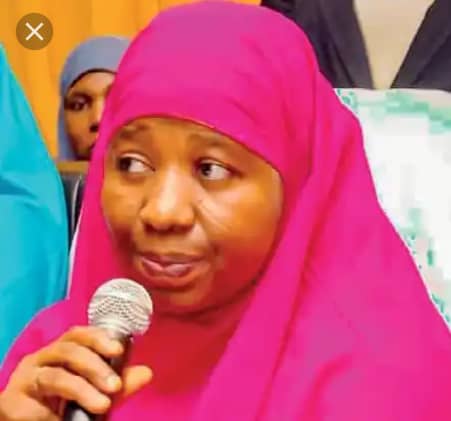By Mika’il Tsoho, Dutse
As the world celebrated the International Day of the Girl Child, the First Lady of Jigawa State, Hajiya Hadiza Umar Namadi, has reiterated her commitment to advancing the education of girls in the state. Speaking during a special event at Kudai Primary and Junior Secondary School, she assured continued efforts to uplift the standard of education for girls, promising new initiatives aimed at empowering them to realize their full potential.
Represented by the Commissioner for Women Affairs and Social Development, Hajiya Hadiza Abdulwahab, the First Lady emphasized the significance of the day as a reminder of the immense potential girls possess and how their dreams and aspirations could shape the future of Jigawa and the country at large.
“We are blessed with resilient, intelligent, and ambitious girls who continue to break barriers despite the challenges they face,” the First Lady said. “These girls envision a future where they are leaders in their communities, excelling in education, contributing to economic growth, and taking bold strides in all areas of life.”
The First Lady urged the gathered students to remain determined and focused on their dreams, noting that they hold the key to Jigawa’s progress. “Your dreams matter, and you have the power to shape your own future and that of Jigawa State,” she added.
A Broader Vision For Girls’ Education
The First Lady’s speech underscored how her vision aligns with the ongoing efforts of the Jigawa State Government, led by Governor Malam Umar Namadi, to raise the standard of education, particularly for girls. Under this administration, several impactful initiatives have been launched, including the provision of free school uniforms and increased funding for the school feeding program. These initiatives are designed to ensure that girls are well-nourished and able to focus on their studies.
Flashbacks to previous reports highlight the sustained commitment of Jigawa’s leadership toward education. In 2021, The Times Nigeria reported how Governor Namadi’s administration initiated the construction of additional classrooms across various primary and secondary schools, significantly reducing overcrowding and enabling more girls to attend school. The state’s commitment to empowering girls through education was further demonstrated by the introduction of skills acquisition programs specifically targeted at female students, providing them with practical training for economic independence.
Overcoming Challenges To Girl Child Education
Despite the progress, challenges remain. Many girls in Jigawa, and across Nigeria, face barriers to education, including early marriage, cultural expectations, and economic hardship. Previous reports by The Times Nigeria have highlighted the alarming rates of girls dropping out of school due to these obstacles. A 2022 feature emphasized that nearly one in four girls in Northern Nigeria leaves school before completing secondary education, a statistic the Jigawa government is working to reduce.
In her speech, Hajiya Hadiza acknowledged these challenges but expressed confidence in the resilience of Jigawa’s girls, citing their determination to break down these barriers. She also reaffirmed that the state government, alongside families and communities, stands firmly behind them in their pursuit of success.
A Call To Action
Addressing the broader community, the First Lady called on all stakeholders – parents, educators, and local leaders – to continue supporting efforts to uplift the education of the girl child. “We must ensure that every girl in Jigawa has access to quality education, proper nourishment, and the tools to achieve her dreams,” she stated.
Flashbacks to 2020 show that the state made significant strides in school enrollment for girls when former Governor Badaru introduced a scholarship scheme for young female students in science and technology. The scheme, reported by The Times Nigeria, has since seen an increase in the number of girls pursuing education in STEM (Science, Technology, Engineering, and Mathematics) fields, contributing to the diversification of opportunities available to women in Jigawa.
The Future of Jigawa’s Girls
The First Lady concluded by assuring the students that the government’s commitment to their education is unwavering. “You have our full support. We will walk with you every step of the way as you chase your dreams,” she said.
The International Day of the Girl Child, celebrated annually on October 11, serves as a global platform to highlight the challenges girls face and the importance of their empowerment. In Jigawa, the celebration was a powerful reminder that education is not only a right but a transformative tool that can change the course of a girl’s life – and, by extension, the future of the entire state.
As Jigawa continues its journey toward enhancing educational opportunities for all, especially girls, the efforts of leaders like Hajiya Hadiza Umar Namadi are paving the way for a brighter, more equitable future.



